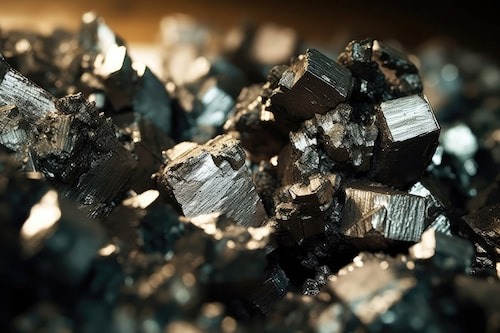India–US Trade Tensions Rise Over Steel and Auto Tariffs NMDC Limited reports a 38% drop in Q4 FY24 consolidated net profit RINL to Raise $23 Million Through Land Sales Amid Crisis

The European Union (EU) and the United States are engaged in discussions to merge their efforts in engaging suppliers of critical minerals, aiming to streamline their strategies against China's stronghold on materials crucial for future technologies. According to insiders, the plan involves combining the EU's overarching policy approach with the US's emphasis on specific projects.
This initiative would integrate the EU's critical raw materials club concept with the Biden administration's Minerals Security Partnership following the EU's decision to postpone its programme launch at last year's COP 28 climate summit in Dubai. The proposed "minerals security partnership forum" seeks to align outreach efforts to buyers in developed and resource-rich nations to collaborate on projects and policies.
As part of broader economic security strategies, both Washington and Brussels seek to counter China's dominance in critical mineral supply chains. Their combined efforts involve working with resource-rich nations to establish standards on investment, trade, research, and environmental issues as an alternative to relying on China.
Despite identifying numerous potential projects, the US and EU face significant challenges in reducing Beijing's dominance, given the time and resources required for mining or refining ventures. Nevertheless, officials aim to finalise an agreement later this month and officially launch the project in March, with discussions planned at the Munich Security Conference.
EU and US officials are exploring ways to optimise international cooperation on critical raw materials, aiming to find synergies between the EU's initiatives and other international activities. The US State Department underscores the importance of avoiding duplicate efforts and ensuring alignment in reducing Western dependence on China for critical mineral production.
While separate talks on a bilateral critical minerals agreement remain stalled over labour rights and feasibility concerns amid an election year, the EU-US partnership underscores efforts to diversify supply chains. Central Asian countries within the C5+1 group have also shown interest in the mineral security partnership, reflecting a broader international engagement in this initiative.
Also Read : EU Slashes Indian Steel Import Quota by 47%, Doubles Tariffs Amid CBAM Rollout Europe, Africa oil markets tighten as lending boosts futures